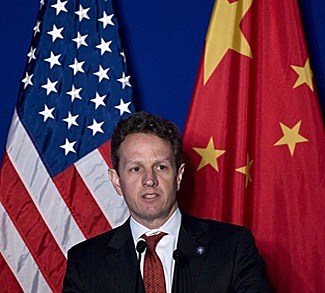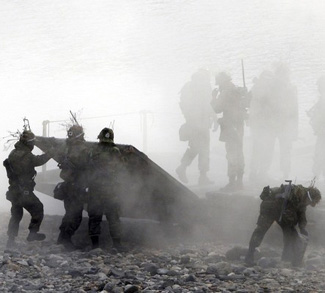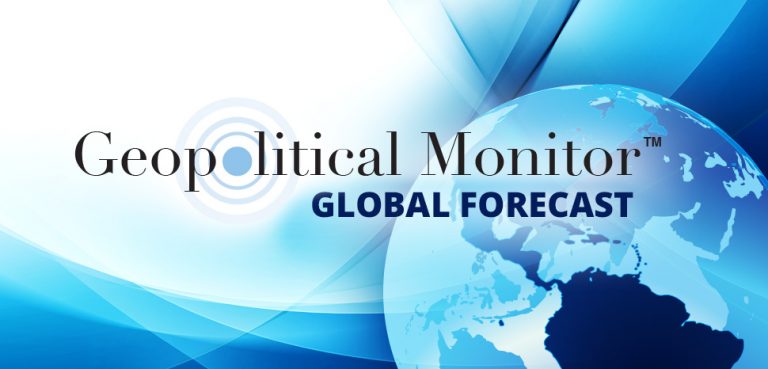FORECAST
The three concurrent trends of massive U.S. government debt, deficit spending, and a willingness to print money have caused Chinese economic planners to eye the PRC’s massive U.S. dollar-dominated federal currency reserves with increasing anxiety, however, instead of a complete turn away from the USD, Beijing instead will pace out its diversification efforts over the next two decades.
The goal of moving away from the USD begs the question of what would replace it. On this, Beijing seems to be adopting a two-pronged approach. In an effort to make the RMB more suitable as a global trading currency, Chinese government officials have embarked on spinning a global web of bilateral trading relationships based on alternative national currencies. A trade mission to Brazil in May finalized one such deal, allowing China to pay for Brazilian goods with RMBs and Brazil to pay for Chinese goods with Reals. Similarly, Beijing has also begun to promote using the RMB to conduct trade with Taiwan.
Economic risk stemming from over reliance on the USD is a scenario that is not limited to China. Several other countries are concerned about the value of their foreign currency holdings. As such, Chinese bilateral advances aimed at forming alternative currency trading relationships are likely to be welcomed on the other end. In the case of Brazil, President Lula de Silva publically stressed the importance of bilateral trade in currencies other than the USD a week before the Chinese trade mission even arrived.
Beijing has also floated the idea of not relying on national currencies altogether. In a move indicative of an emboldened Chinese stance, Governor of the China central bank Zhou Xiaochuan suggested that the world adopt a new reserve currency in the form of special drawing rights (SDRs). The SDR is a ‘basket’ unit of global currencies that is used by the International Monetary Fund. While it is widely held that major global economic players aren’t yet willing to adopt the SDR, some experts have interpreted Zhou’s announcement as an admission that China is willing to list the RMB under the SDR; a move that is tantamount to the RMB taking another step towards becoming a global currency.
In the meantime, China is favoring investments in foreign natural resources over U.S. treasury bills as another way to insulate the value of foreign currency reserves. Large deals like the purchase of Australia’s Rio Tinto have the dual benefit of securing input materials for Chinese industries as well as diversifying Chinese holdings away from the USD.
The Chinese government has started a comprehensive campaign to increase the commercial viability of the RMB. Over the next two decades or so, use and holdings of the RMB will increase and the currency will eventually be seen as a viable alternative to the USD. It is only at this point that moving towards a system like the SDR is feasible, made possible by the lack of a dominant global currency. Chinese efforts towards this end will be greatly helped by inevitable inflation pressures on the USD, which will send USD value down as the RMB continues to rise.
It is also worth noting that efforts to increase the global importance of the RMB also strengthen Beijing’s diplomatic position in any future “new economic order.” China has historically been a taker, not a maker, of international norms. It can be expected that China will now take an active interest in maximizing any influence on the creation of new international economic regimes. Zhou’s announcement on the global economy adopting the SDR can be interpreted as a step in this direction.
SUMMARY OF EVENTS: May 25 – June 1, 2009
WORLD
World leaders condemned North Korea for carrying out nuclear and missile tests and U.S. President Barack Obama said Pyongyang’s actions were a reckless challenge warranting action from the international community.
NORTH AMERICA
Mexico
Soldiers burst into police stations and town halls Tuesday to arrest 27 public officials in Michoacan, the home state of President Felipe Calderon and the place he launched his army-led assault on drug cartels in late 2006.
United States
The U.S. plans to push the FBI and the Justice Department into global counter-terrorism operations in a shift away from the Bush administration’s policy that relied largely on the CIA, a media report said Thursday.
WESTERN EUROPE
Britain
British pilots in Afghanistan are firing an increasing number of “enhanced blast” thermobaric weapons, designed to kill everyone in buildings they strike, the Ministry of Defence has revealed.
France
The Church of Scientology and seven of its French leaders went on trial on Monday on charges of organised fraud that could lead to an outright ban on the organisation in France.
Italy
The former head of Italian military intelligence Wednesday denied at a landmark trial any role in the CIA kidnapping of an Egyptian imam from a Milan street six years ago.
EASTERN EUROPE
Georgia
Georgia’s opposition, which has been demanding the president’s resignation for around two months, said it planned to start “radical acts” on Tuesday.
Spiraling confrontation in Georgia saw several people injured Thursday in clashes between the police and the opposition, rallying since April 9 in a bid to force the president to resign.
U.N. Secretary-General Ban Ki-moon on Thursday rejected Georgia’s accusation that he caved in to “Russian blackmail” by changing the language in his latest report on the Caucasus state.
Russia
Russia is planning to build a strong military contingent in Central Asia within the framework of the Collective Security Treaty Organization (CSTO) comparable to NATO forces in Europe, a Russian business daily said on Friday.
MIDDLE EAST
Iran
A senior official of Iran’s southeastern province of Sistan-Baluchistan on Friday accused the United States of hiring bombers who were behind an deadly explosion in a mosque in the province’s capital city of Zahedan.
Iraq
Iraq’s anti-corruption watchdog says arrest warrants have been issued for some 1,000 allegedly corrupt officials.
Israel
Israel suspects Venezuela and Bolivia of supplying uranium to Iran, according to a foreign ministry document leaked to media.
Lebanon
Hezbollah’s secretary general calls a recent accusatory article in the German daily, Der Spiegel a cover-up for Israeli assassinations in Lebanon.
A Lebanese army colonel has been detained on suspicion of spying for Israel, security sources said on Tuesday.
EAST ASIA
North Korea
North Korea reportedly fired two short-range missiles on Tuesday, in a move set to heighten tensions after its latest nuclear weapons test drew global condemnation.
North Korea, facing international censure for this week’s nuclear test, threatened on Wednesday to attack the South after it joined a U.S.-led plan to check vessels suspected of carrying equipment for weapons of mass destruction.
North Korea fired another short-range missile on Friday and threatened fresh steps if world powers impose sanctions for its nuclear test, amid signs it may be readying a new long-range launch.
South Korea
South Korea and the United States raised the military alert level for the peninsula on Thursday after the communist North warned the truce ending the Korean War was dead and it was ready to attack.
CENTRAL ASIA
Kyrgyzstan
Kyrgyzstan denied claims by Uzbekistan that a series of deadly attacks inside its secretive neighbour were staged from Kyrgyz territory.
Turkmenistan
Turkmenistan threatened to take Russia to court over last month’s gas pipeline explosion, RIA news agency reported, escalating a dispute that has severed a vital energy link through Russia to Europe.
SOUTH ASIA
Pakistan
Gunmen attacked a police headquarters in the Pakistani city of Lahore on Wednesday, setting off a car-bomb that killed at least 24 people in what the government said was revenge for an offensive against the Taliban.
Sri Lanka
The UN’s high commissioner for human rights has called for an independent investigation into alleged atrocities by both sides in Sri Lanka’s civil war.
Sri Lanka faced fresh allegations on Friday that its army had killed huge numbers of civilians during its offensive against the Tamil Tigers, as well as complaints it was continuing to block aid workers.
AFRICA
Somalia
Somalia’s President Sharif Sheikh Ahmed condemned on Monday what he termed as an invasion by foreign fighters as rebels battle to oust him in weeks of clashes that have killed more than 200 people.




